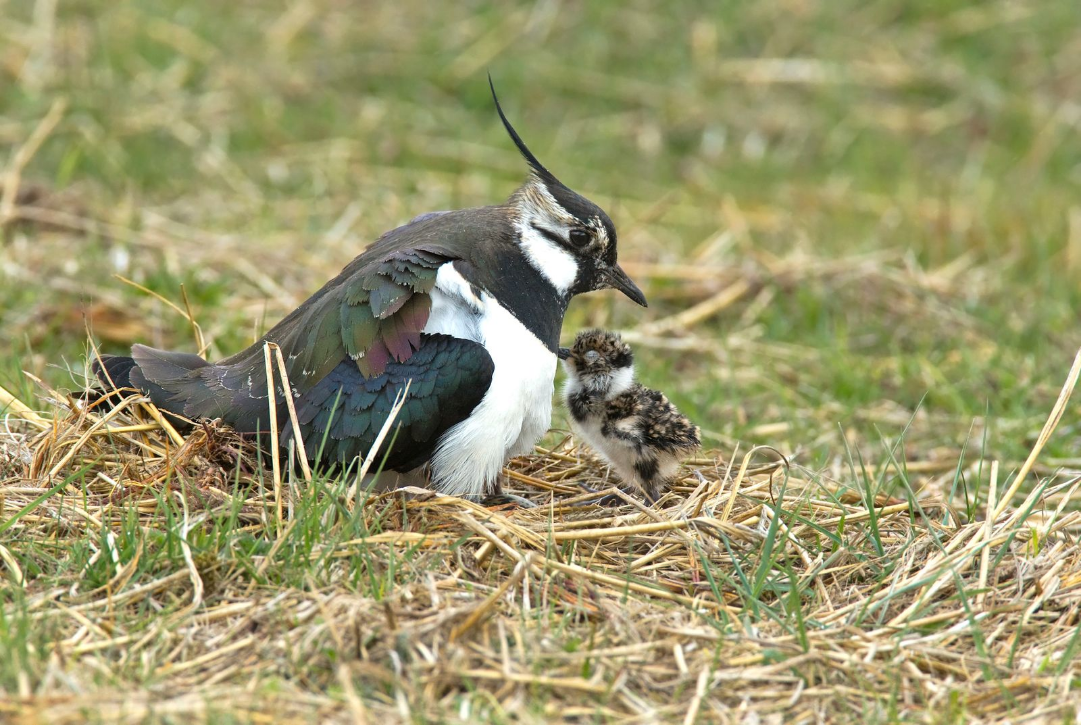Park Talk: play your part to protect precious wildlife

Park Talk: play your part to protect precious wildlife
By Judith Webb, CNPA Board Member
The Cairngorms National Park is a very special place and you can play your part in helping to look after the Park by ‘treading lightly’ this Spring when you’re enjoying the outdoors.
Whether you live here or are visiting the Park, we all have to act responsibly so as not to harm the precious wildlife, habitats and landscape. We must always take responsibility for our own actions, always respect the interests of other people and always care for the environment.
From April to August we must be particularly careful that we do not disturb our ground nesting birds – everything from farmland waders such as oyster catchers, curlews, snipe and redshank to dotterel on the high tops and capercaillie and black grouse in and around our woodlands.
Sadly, our ground nesting birds are decreasing in number. While the latest capercaillie figures are not yet available, we suspect they will show a further decline. Figures for waders in recent years are also showing a downward trend and black grouse are no different.
There are multiple factors at play – some we have no control over – such as bad weather. Habitat improvements and predator control are very much part of the range of activities being carried out in different locations to help bolster numbers.
Residents and visitors can play their part too by preventing disturbance at nesting time and when chicks are still very young. From April to August we ask that dog walkers keep their pets on a lead or close to heel. If dogs are off lead and running around in the bushes away from the path, they can scatter ground nesting birds and chicks leading to egg chilling, separation of chicks, and if not reunited, then possible chick death.
It would be incredibly disappointing if some of these species of ground nesting birds were to disappear from our landscapes. As well as being important to our natural heritage – they are important culturally too. Take the lapwing – affectionally known as a peasie or a peewit. Their constant diving and swooping behind a tractor and plough is a truly iconic image of farm life in spring. Capercaillie have been around since the last ice age, their Gaelic name ‘capall coille’ meaning ‘horse of the wood’ from their unique call.
There is an interesting book called Red Sixty Seven – a collection of words and art inspired by the UK’s most vulnerable birds. It features the peasie, curlew, dotterel and ringed plover – with capercaillie and black grouse on neighbouring pages. The fact that all these birds (and many others) are in Red Sixty Seven is worrying, and reminds us all to never be complacent about wildlife, and that we should do all we can to help ensure a healthy future for our ground nesting birds.
So please ‘play your part’ in protecting the Park’s wildlife, whether it be dogs on leads, leaving no litter or not lighting fires. You can find out more information on enjoying the Park safely here or for more advice on enjoying the countryside responsibly this Spring and Summer please do familiarise yourself with the Scottish Outdoor Access Code.
Alert
Latest from the National Park
A dose of the great outdoors: nature prescriptions on the NHS
As one of the first people to be prescribed nature on the NHS, Caron shares her story on how access to support to get outdoors has changed her life for the better.
Five years on
Reflections from the Cairngorms National Park Ranger Service.
What’s the point of wasps? You might be surprised
Resident expert and entomologist Hayley Wiswell shares more about the ‘yellow jacket’ and how we can learn to live peacefully alongside them.
Relevant alerts
-
The Scottish Fire and Rescue Service has issued a wildfire warning impacting parts of the National Park from Wednesday 13 August until Tuesday 19 August. If you are out and about in the Cairngorms National Park please observe the following guidance:
- Do not light any fire or barbecue.
- Always ensure cigarettes are fully extinguished and take your litter (including glass) away with you.
- Enjoy the outdoors responsibly - most wildfires are caused by human activity.
- Stay alert - with dry vegetation and warm weather, fires can start easily, spread rapidly, and burn intensely.
- If you see a wildfire, dial 999.
For further updates on wildfire risk across Scotland, visit the Scottish Fire and Rescue Service website.




